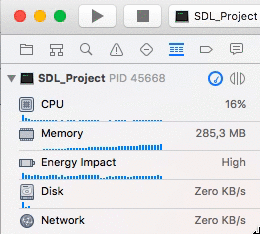Memory can also be directly allocated with malloc() or related functions such as realloc() or calloc() or with direct OS calls such as the HeapAlloc() function in Windows.
Alright, then I'm not sure why my code is leaking.
SHouldn't, have checked my code around 20 times now, and I have deallocated all pointers that I use. :/
Are you sure it's your code leaking and not some external library that you're using?
Did you find all the places in your code that you call malloc or one of the other allocation functions? If you never call new then that has to be the cause.
Don't know actually.
How would I go about finding the leak if thats the case?
Would I have to check every single function that I use in my code and see what I need to do on the documentation of my library?






